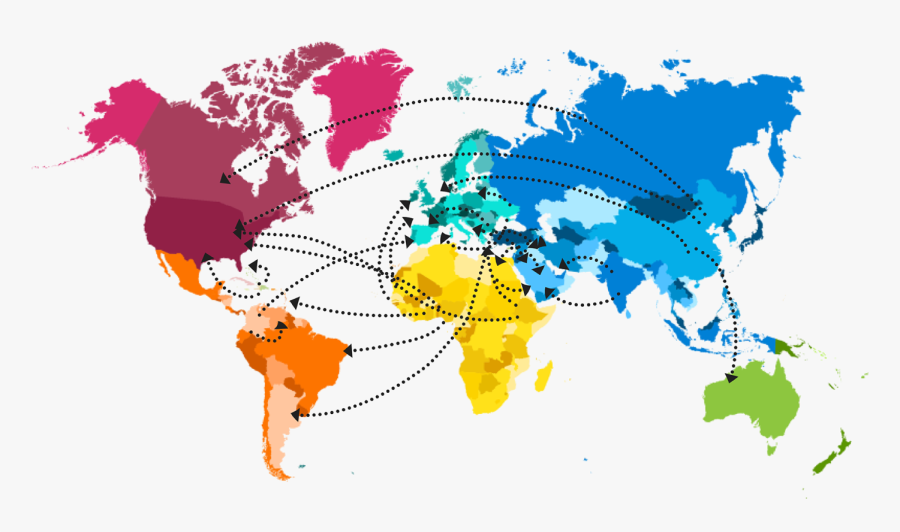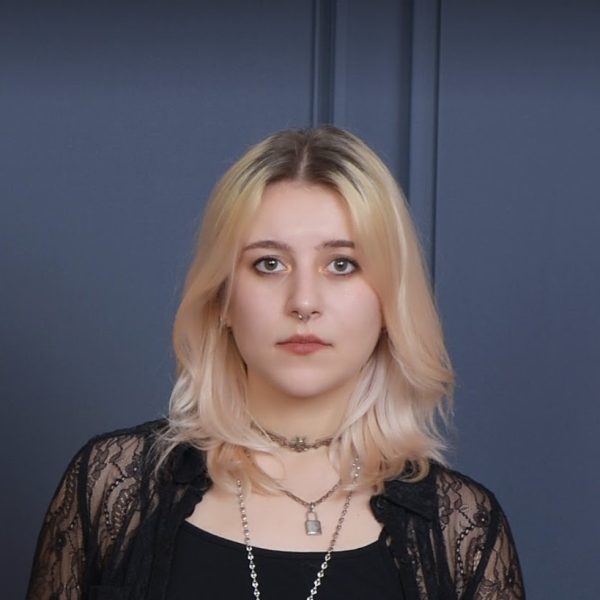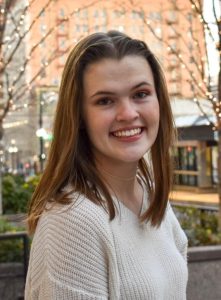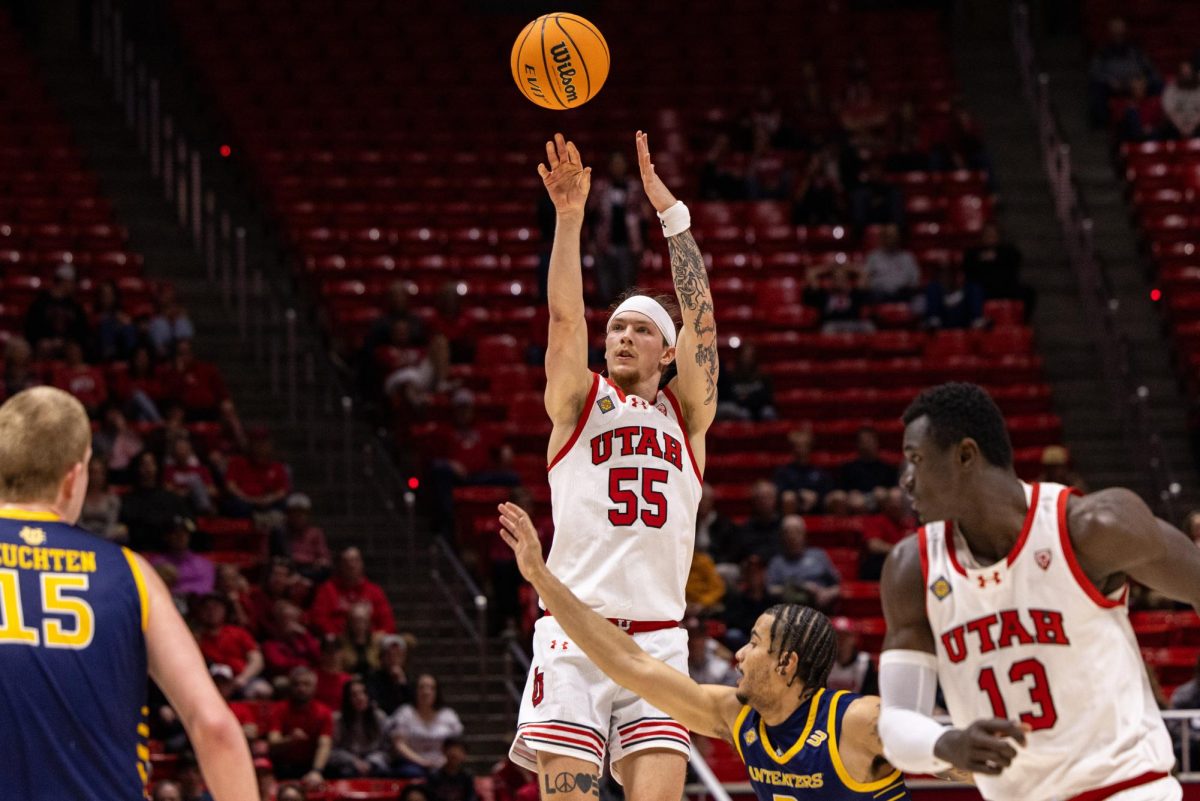Lezaic: Anti-War Musings of a Diaspora Kid
(Design by Claire Peterson | The Daily Utah Chronicle)
July 1, 2022
After seven long years, I am finally back in Serbia. When I stepped off the plane and merged into a sea of people who look and talk like me, I felt an immediate sense of belonging. All-consuming relief flooded me after years of being immersed in a culture that isn’t mine. I realized I’d become a faded version of myself in America with a growing disconnect between myself and my culture.
But the relief didn’t last long. I felt isolated seeing other Serbs roll our language off their tongues without stuttering. Meanwhile I talk like a child who learned the language by listening to my parents and grandparents. I didn’t grow up in their cities or villages. I don’t know all the customs or fully understand the politics, no matter how much I read. It doesn’t help that I’ve only been here on summer vacations.
I am left stuck between two worlds. In America, I’m not American enough — not that I really want to be. My status in a foreign family garners either mild interest or hate. I don’t relate to multigenerational Americans, so all of my friends are children of immigrants. Even then, I’ve never had Serbian-American friends my age.
I wouldn’t wish this experience upon anyone. The loneliness and crushing weight of it gets heavier every year. Each time I see the United States poke its nose into another conflict it played a role in creating, I think of the families that will be displaced or worse.
To be clear, I won’t dive into the specifics of different wars. Rather, I will make a testament to one of the many underrepresented ways war affects people’s lives. My experiences as a diaspora kid are conflicting and leave my mind reeling at every turn. I hope other diaspora kids feel represented here and find some peace of mind.
Historical Context
In 1999, my parents fled the civil war in former Yugoslavia — a federation composed of the southeastern European republics Serbia, Bosnia and Herzegovina, Croatia, Slovenia and Macedonia. The conflict has a long and indescribably complicated history. But as the Workers League Political Committee wrote in opposition to NATO’s imperialist involvement, the war and its horrors were “the inevitable result of the drive to restore capitalism and carve up the country along ethnic and national lines.” Yugoslavia was a communist state, and therefore the U.S.’s target.
The countries still suffer the aftermath of war, but it is safe to visit family. And although going every summer isn’t affordable, I am lucky enough to occasionally travel to Serbia.
Cultural Reconnection
Finding information about my culture online doesn’t do it justice. It feels clinical and sterilized. No matter how much I read, it’s like I’m grasping at straws.
Now that I’m back, I have the opportunity to reconnect with my culture. I go to museums, art galleries and bookstores. I visit landmarks and stroll through the city, taking in the local graffiti as street performers fill the air with their music. But what I love most is simply sitting with my grandparents, eating fruit from their gardens or drinking coffee as they tell me their stories. I can spend hours looking through old photo albums while they talk about our ancestors. Nothing makes me feel more connected to my heritage than these moments, though they can’t last forever.
Fleeting Moments
I’m here on borrowed time. That knowledge follows me everywhere like a ticking time bomb. I dread saying goodbye to my family because I don’t know when or if I will see them again. My grandparents aren’t getting any younger. While we cherish poring over photo albums together, we’re all silently aware of how unclear the future is.
I have no use for distractions like my phone here. I’m too busy trying desperately to absorb everything. So, when I see the people of Belgrade casually walking the streets, ears covered with headphones and eyes glued to their phones — the way mine would be in Salt Lake — I’m reminded that this place isn’t mine to take for granted. I can’t afford to take it for granted. I’ll admit, I get jealous. I’m aware that the grass is always greener on the other side. Still, people need their communities and I’m so alone in Utah. Many diaspora kids feel alone — the U.S. is where cultures go to die.
Leaving your heritage land is not the same as enjoying a vacation in some random country and fantasizing about living there. This is painful because it could’ve been mine. Instead, war, politics and American imperialism took the option away from me and so many others across the world. Nobody should have to suffer the disconnect, and so we must fight back against the injustices and fearmongering propaganda that lead to war.
Though visiting Serbia this summer has reopened many wounds, it has also provided healing. When I’m in Serbia, the loneliness doesn’t go away. But for once, I feel fulfilled. I like looking at the beautiful old buildings and the sunflower fields. I walk to corner stores and bakeries in the mornings and say “hi” to all the stray cats. In the evenings, I love listening to street musicians playing folk music with their accordions.
I suppose all we can do, in any of the realities forced upon us, is try to live in the moment.










Carmen • Jul 5, 2022 at 1:28 pm
Beautiful article, thank you for sharing I too am a student of sociology! When o talk about mass migration people get mad at me because I think it is wrong that so many have to leave thier homelands; we lose culture this way. I don’t think the people need to leave, it’s the leaders that should be removed because they aren’t doing what is best for their own people. Sadly corruption is rampant across the globe as to be expected; Thompson Cycle of Civilization, we should know and do better by now!